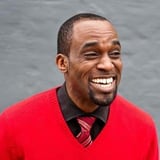Summary
For the past year, “Having a seat at the table” has been one of the most widely-discussed topics in the research community. However, what happens once that seat has been won? What we’ve typically seen is researchers struggling to discern between the specific needs and expectations of senior leadership and stakeholders, and those of the product teams they’re grown accustomed to working with. This presentation will distill, from several previous studies, lessons to guide researchers in how to go from just having a seat at the table, to actually using it towards influence strategic decision-making.
Key Insights
-
•
Senior leaders usually prefer strong opinions and clear next steps over detailed research methodologies.
-
•
Researchers often talk to leadership as if they were peers, causing a gap in communication effectiveness.
-
•
The discipline of research has evolved from seeking approval to demanding inclusion at decision-making forums.
-
•
Many researchers already have a metaphorical seat at the table, evidenced by leadership referencing and using their work.
-
•
Analyzing how stakeholders communicate—positive, fact-based, or intensity-driven—helps tailor messages for greater impact.
-
•
Effective storytelling for leadership means creating memorable, high-level narratives rather than comprehensive reports.
-
•
Research teams must start involvement well before formal planning cycles to influence investment decisions.
-
•
Closing the feedback loop by gathering stakeholder responses post-decision is crucial but often overlooked.
-
•
Cultural differences, such as inductive versus deductive reasoning, affect how research findings should be presented.
-
•
Understanding stakeholders’ goals and language (e.g., metrics like revenue or user engagement) improves researcher alignment and influence.
Notable Quotes
"VPs want to know what you really think. They want to see your insights distilled into a clear position of what needs to be done next."
"We have been focused for so long on getting that seat that we haven’t realized that a lot of us are actually already there."
"The moment they begin to shift their thinking and make decisions based on that work, they’re actually giving you a seat."
"Different people communicate in different ways, and understanding those ways gives you the key to convincing them."
"People broadly fall into three communication styles: positive, fact-based, and intensity-based."
"Telling the right story means creating a memorable shorthand that leaders can reference when they're at other tables."
"Closing the loop by understanding when and why recommendations don’t get adopted is probably the most easily actionable piece of advice I can give."
"Stakeholders aren’t leaving us out on purpose; they make reasonable decisions with imperfect information."
"The single most important thing we can do at the table is expanding the boundaries of knowledge for decision makers."
"If you understand their language—gross merchandising value, monthly recurring revenue, daily active users—you speak their world."
Or choose a question:
















More Videos

"I’ve nearly bought products in my sleep because I memorized the key presses from consistent checkout flows."
Sam ProulxOnline Shopping: Designing an Accessible Experience
June 7, 2023

"Evaluations and promotions can be nebulous and awkward, especially in collaborative design work."
Ignacio MartinezFair and Effective Designer Evaluation
September 25, 2024

"Transformation is new ways of thinking and eventually doing; we won’t have all the answers at the start and that’s okay."
Sarah Kinkade Mariana Ortiz-ReyesDesign Management Models in the Face of Transformation
June 8, 2022

"Belonging means understanding the shape, size, and cause of your community and your unique purpose in it."
Daniel GloydWarming the User Experience: Lessons from America's first and most radical human-centered designers
May 9, 2024

"Traditional metrics create a dangerous illusion where we optimize for what we can measure, not what people actually need."
Patrick BoehlerFishing for Real Needs: Reimagining Journalism Needs with AI
June 10, 2025

"There’s a big merger in this space and two UX giants haven’t been behaving nicely, introducing higher prices and stricter commercial terms."
Andy Barraclough Betsy NelsonFrom Costly Complexity to Efficient Insights: Why UX Teams Are Switching To Voxpopme
September 23, 2024

"The future of our technology cannot and should not rest solely on the ethics of individual designers."
Alexandra SchmidtWhy Ethics Can't Save Tech
November 18, 2022

"In government, the motivation is reduction of misery: why are we up at 3 AM fixing something avoidable?"
Louis RosenfeldDiscussion: What Operations can teach DesignOps
November 6, 2017

"When you get stuck, fall back to the loop: observe, reflect, and make. Get out and talk to users."
Mitchell BernsteinOrganizing Chaos: How IBM is Defining Design Systems with Sketch for an Ever-Changing AI Landscape
September 29, 2021
















